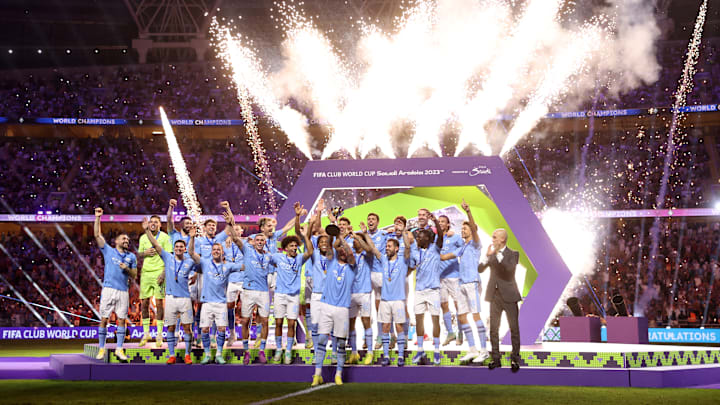It’s not every day that FIFA, forever hungry for more cash, projects a staggering $2.5 billion from a single tournament. You can practically smell the money in the air. But will all this cash from the 2025 Club World Cup really benefit soccer, or is it just another way to squeeze profits from an already inflated market?
FIFA’s never been shy about expanding its empire. The organization has always found a way to turn global events into gold mines. And guess what? The Club World Cup won’t be any different. With this new four-year format, FIFA’s betting big on its ability to grab attention—and dollars, of course.
Follow MLS Multiplex on X (Twitter).
That $2.5 billion revenue projection makes the 2025 Club World Cup one of the most profitable sports events of the decade, right behind the World Cup itself. Why does that matter? Because FIFA’s selling this whole thing as a chance to globalize soccer even more. But does this distribution of spots really live up to the "World" in the title? Or is it just a reflection of the same power and money structures that already dominate the sport?
With Europe taking 12 of the 32 slots, it’s hard not to think this tournament is just a mini-Champions League with a few special guest appearances. And let’s be real, it doesn’t go unnoticed. While European clubs are swimming in money with insane infrastructure, other continents are left with crumbs. Oceania, for example, only gets to send one team. One. What does that smell like? Pure inequality. But hey, that’s what we’re getting in 2025, and if there’s one thing FIFA knows how to do, it’s making the most of any situation.
South America, the land of legends like Pelé, Maradona, Messi, and so many others, only gets six spots. You don’t have to be a genius to see that something’s off. We’re talking about a continent that’s historically given the world some of the greatest soccer talent, yet in this new format, they get half the spots that Europe does.
It’s easy to see FIFA’s logic. European clubs have more money, more visibility, and more sponsors. That’s where the fans and profits are. But can you picture Boca Juniors, River Plate, Fluminense, or Palmeiras being sidelined in a global tournament? The word “global” implies diversity, right? But looking at this spot distribution, it seems like FIFA’s more interested in ensuring the richest, most powerful clubs stay on top. If you’re from Africa or Asia, you’ll have to settle for four spots each. That’s 1/3 of Europe’s. And if you’re from Oceania? Well, good luck with your single shot. FIFA, with its focus on maximizing profits, seems to be turning a blind eye to this.
Will this tournament make soccer better overall? Or will it just be another example of how the sport is becoming more of a business dominated by financial interests? FIFA knows how to make money. And if the 2025 Club World Cup pulls in that expected $2.5 billion, it’ll further cement the organization as the biggest revenue machine in sports.
Of course, soccer fans worldwide are excited. Who wouldn’t be? Watching the best clubs face off on a global stage has always been thrilling. But the real question is whether this event will bring anything new or just keep the status quo.
Now, I’m not saying the 2025 Club World Cup will flop. Quite the opposite—FIFA will probably put on a show that’ll leave soccer fans glued to their screens for weeks. But what happens afterward? What will change in the sport? If FIFA hits that massive revenue target, will we see more fair investments in soccer development in less privileged regions? Or will the money keep flowing into the same deep pockets?
“Soccer is the sport of the poor, but the entertainment of the rich.” And with every new move FIFA makes, this idea feels more real. The organization can argue all it wants about trying to globalize the game, but in practice, we’re seeing the same concentration of power and money in the usual places.
